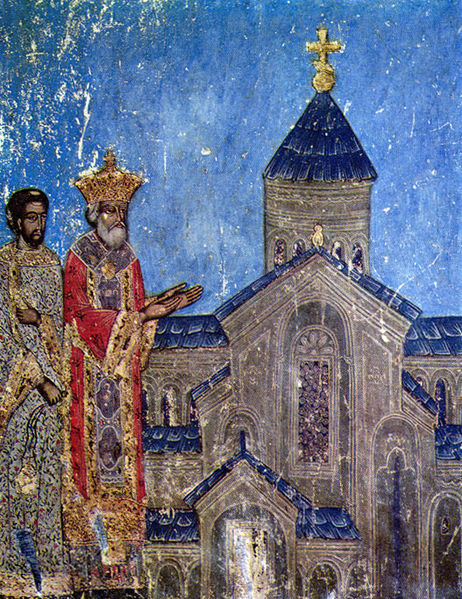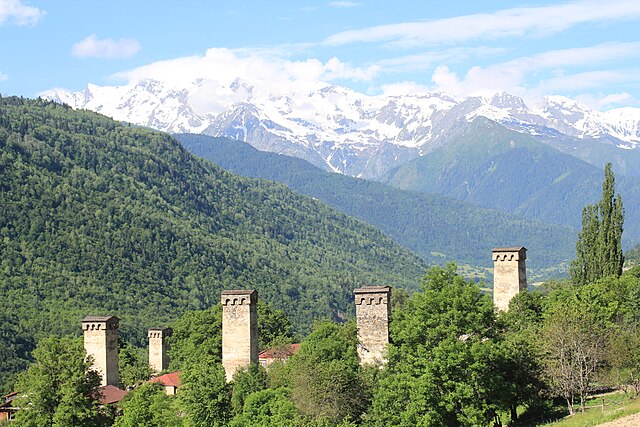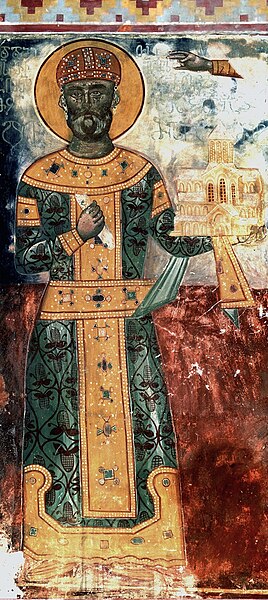The Rose Revolution or Revolution of Roses was a nonviolent change of power that occurred in Georgia in November 2003. The event was brought about by widespread protests over the disputed parliamentary elections and culminated in the resignation of President Eduard Shevardnadze, which marked the end of the Soviet era leadership in the country. The revolution derives its name from the climactic moment, when demonstrators led by Mikheil Saakashvili stormed the Parliament session with red roses in hand.
Demonstrators spending the night in front of the Georgian Parliament in Tbilisi
Mikheil Saakashvili with protestors
Saakashvili's inauguration as President of Georgia
Georgia is a transcontinental country in Eastern Europe and West Asia. It is part of the Caucasus region, bounded by the Black Sea to the west, Russia to the north and northeast, Turkey to the southwest, Armenia to the south, and Azerbaijan to the southeast. Georgia covers an area of 69,700 square kilometres (26,900 sq mi). It has a population of 3.7 million, of which over a third live in the capital and largest city, Tbilisi. Georgians, who are indigenous to the region, constitute a majority and a titular nation in Georgia.
King Mirian III converted the nation to Christianity in the 4th century.
Northwestern Georgia is home to the medieval defensive Svan towers of Ushguli and Mestia.
Bedia Chalice, a medieval Georgian goldsmithery dated c. 999 AD.
David the Builder, the original architect of the Golden Age. Fresco from Gelati monastery.







